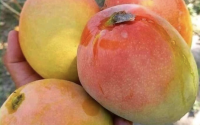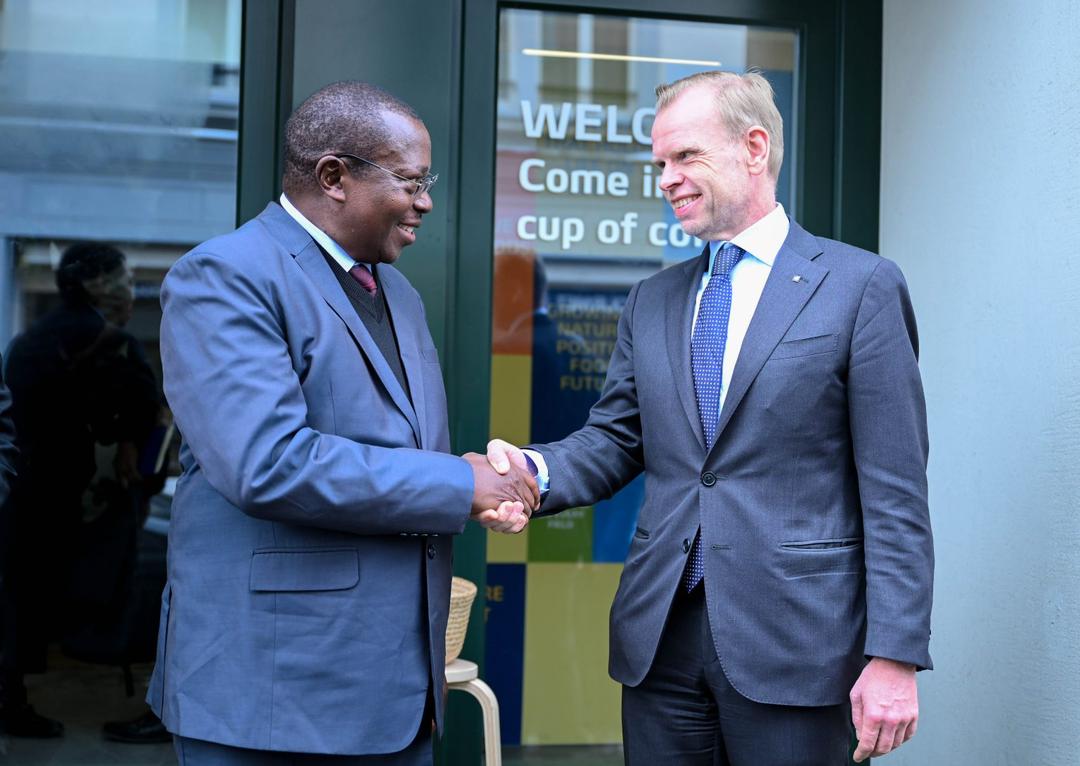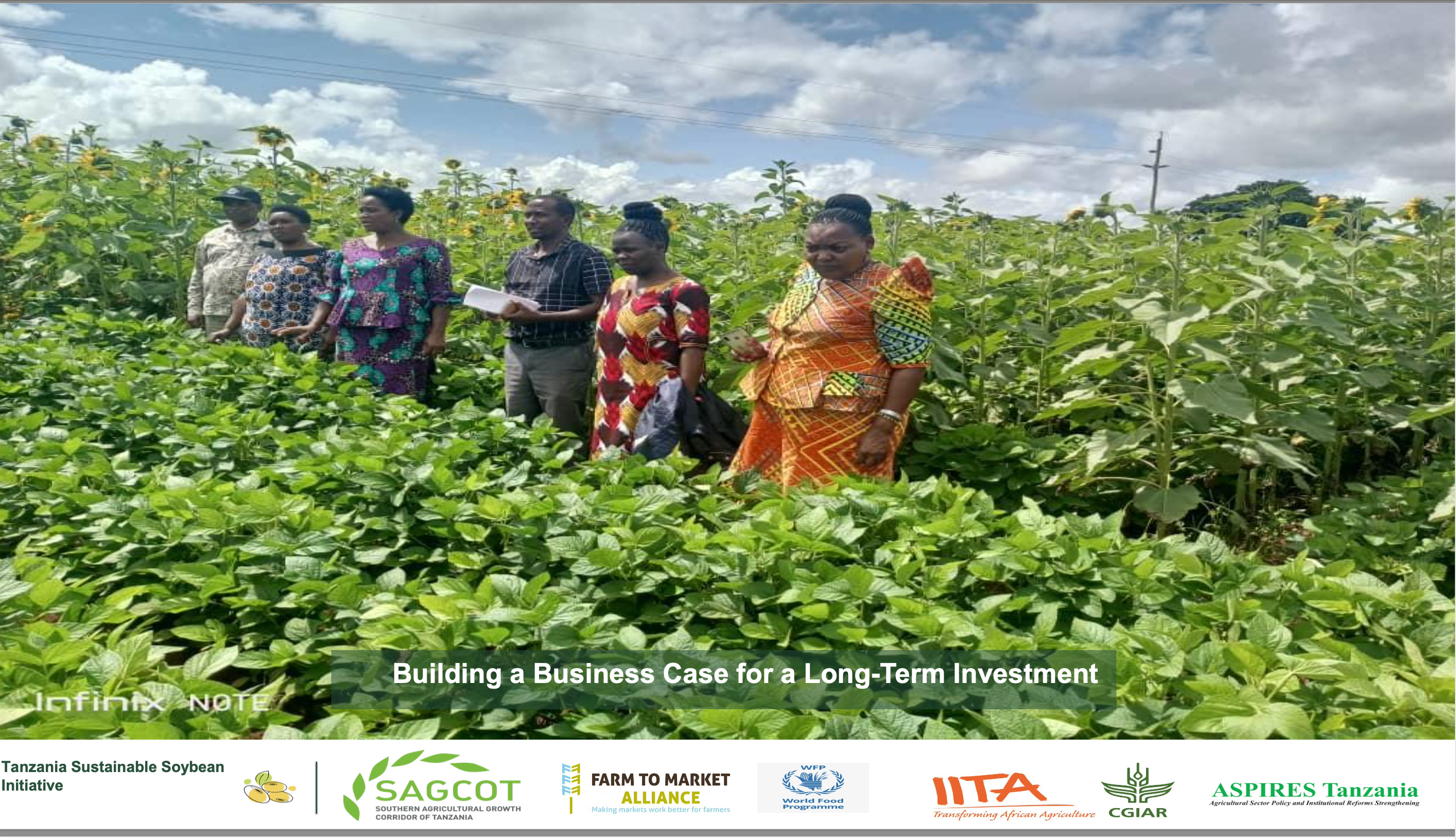President Samia’s End-of-Year Address Highlights Robust Economic Growth, Healthcare Advances, and Strategic International Partnership
Transcribed and translated by Charles Anthony.
Here is President Samia Suluhu Hassan’s end-of-year speech, in which she comprehensively outlines the significant strides Tanzania has made in various sectors throughout the year. Her address encompasses the nation’s achievements in economic growth, healthcare improvements, education reforms, and international collaborations, reflecting on the challenges overcome and setting a forward-looking agenda for continued development and prosperity.
Fellow citizens, today, on December 31st, we bid farewell to the year 2023 and welcome the year 2024. We give thanks to Almighty God for blessing us with grace, life, and good health. There are relatives and friends whom we would have liked to be with us today, but God loved them more. Let us continue to pray to God for their peaceful rest in paradise. Those of us who are alive should pray to be granted health, strength, and joy, to be showered with goodness and blessings, and to be endowed with wisdom and prudence in managing our affairs. Amen.
Fellow citizens, the year 2023 was a year filled with blessings, but it also had its challenges. As a nation, it is important to thank Almighty God for ending the year united and in solidarity.
My speech today will focus on the experiences of this year and our expectations for the coming year, starting with the issue of peace, security, and the safety of our nation. I am pleased to say that all our national borders are secure. Furthermore, our defense and security forces are strong. We all witnessed how our forces dedicated themselves to rescue operations and restoring normalcy after disasters. I take this opportunity to commend them for their courage and patriotism. I also thank and congratulate the citizens for continuing to maintain peace and international unity.
Fellow citizens, as we look at our economic journey, we observe that despite the impacts of COVID-19, the world is currently grappling with the effects of wars that have caused a downturn in global economies, especially in key production sectors. This situation has increased costs and inflation rates for essential goods such as food and fuel for transportation and machinery, which has generally disrupted the global supply chain. Interest rates in financial markets have risen, and the availability of the dollar has also been affected. To protect our economy, we implemented robust monetary policies to ensure price stability, stimulate growth, and strengthen control in the financial sector. We have continued to control inflation, which, from January to November this year 2023, decreased to an average of 3.9%, compared to an average of 4.3% during the same period last year. Additionally, the economic recovery and national income for the year 2023 are estimated to have increased by 5.2%, compared to 4.7% last year in 2022. In the year 2022/23, the government successfully received 1.3 million US dollars, equivalent to 3 trillion shillings, for financing development projects, which is 100% of the planned borrowing amount. However, the national debt continues to be sustainable, with its ratio to the national income at the current value being 35.6%, compared to the limit of 50%. Due to the implementation of the plan to improve the business regulation system, or the blueprint, and policies aimed at opening up the country, we have created a business-friendly environment. This year, the Tanzania Investment Centre registered 504 projects worth 5.6 million US dollars, a 58% increase compared to the 292 projects registered last year in 2022. Among the registered projects, 55 were expansion projects, indicating strong investor confidence in our economy and its growth trajectory. This year, we also successfully assessed our creditworthiness conducted by Moody’s and Fitch, a step that will continue to build international confidence and attract various investment capitals to our country.
In terms of tax collection for the fiscal year ending June 2023, collection reached 22.6 trillion shillings, an increase of 8% compared to the previous year’s collection in 2022. As our economy grows, we will continue to increase collections through robust collection systems and ensure taxes are collected fairly and in accordance with the law.
Fellow citizens, looking at the production sectors, which include agriculture, livestock, fishing, mining, and tourism, these are the pillars of our economy, and that’s where we continue to focus. We aim to reach more producers, especially small-scale ones, and stimulate production at the grassroots level. As the Swahili saying goes, ‘wealth is found in the land.’ In this context, we have increased the agriculture budget from 751 billion shillings last year in 2022 to 970 billion shillings this year, a 29% increase. Our goal is to stimulate the agricultural sector’s growth rate to reach 10% annually by 2030.
Fellow citizens, the production of food crops has increased from 17,148,290 tons in the 2021-22 season to 22,402,014 tons in the 2022-22 season, thus reaching 124% of the national food sufficiency level. The government has allocated 116 billion shillings to the National Food Agency (NFRA) and the Grain and Mixed Crops Board to stimulate the market. In the first phase, the NFRA purchased a total of 200,293 tons of crops. We have also ensured that major crops are sold through auctions to obtain better prices, and we have initiated a new auction for tea. By November this year, 204,818 tons of fertilizers were distributed to farmers across all regions of mainland Tanzania, including a government subsidy worth 67.8 billion shillings. The government continues to provide subsidies for fertilizers, seeds, and pesticides for strategic crops such as cotton, cashews, sunflower, oil palm, coffee, and tea. Moreover, the government has continued efforts to involve youth and women in production. By the end of this year 2023, a total of 201,241 hectares were allocated for these activities. We have launched a modern agriculture program called ‘Build a Better Tomorrow’ (BBT) to increase production, stimulate processing industries, and create jobs for the youth.
On the other hand, the government will continue to invest in irrigation schemes to increase the irrigated area from 727,000 hectares to 822,000 hectares by December 2024. We have given priority to the mining sector, where this year we witnessed a 6.4% increase in the value of produced minerals and a 5.8% increase in minerals exported abroad, reaching 3.15 billion US dollars. Recognizing the significant contribution of small-scale miners in this sector, in 2023 the government purchased five drilling machines for them to increase efficiency and their contribution to the mining sector. The government’s direction is to build domestic value addition for minerals, a step that will enable us to increase value and create more job opportunities.
In the tourism sector, from October last year to October this year 2023, we received 1,750,557 tourists compared to 1,381,881 tourists in the same period last year 2022. During this period, revenue from tourism reached 3.22 billion US dollars, compared to 2.33 billion US dollars in the same period in 2022. These benefits are the result of efforts by the government and stakeholders in this sector. Therefore, I urge service providers in the tourism sector to continue improving their services and for Tanzanians living in tourist areas to maintain hospitality to attract more tourists.
Fellow citizens, economic growth and production are greatly driven by transportation and communication infrastructure. In terms of land transportation, this year the government has continued to complete the construction of roads, bridges, and ferries in various regions. We have also continued with the implementation of the Standard Gauge Railway (SGR), where the sections from Dar es Salaam to Morogoro and Morogoro to Makutupora have reached over 90% completion. We have also received funding from the African Development Bank to develop the Tabora, Kigoma, and Uviza Msongati sections. I have been hearing changes in the start dates for SGR train services from Dar es Salaam to Dodoma, and frankly, the citizens are tired of excuses and want to see the railway in operation. I direct that by the end of July 2024, SGR train services from Dar es Salaam to Dodoma should have commenced.
In maritime transport, we have completed the construction of the wharf at Karema port on Lake Tanganyika. This port will open up the economy, trade, and people-to-people interactions between Tanzania and DRC, thus boosting the economies of the Kigoma, Rukwa, and Katavi regions. We have also completed the construction of the first phase wharf, passenger building, office, and ship docking area at Ndumbi port on Lake Nyasa. In air transport, the government has completed the purchase of one cargo and one passenger aircraft. Additionally, various international airlines such as Air France and Saudi Airlines have been attracted to start services to our country, a development we believe will strengthen the tourism sector and also boost the agriculture sector, especially in the export of flowers and vegetables.
Fellow citizens, regarding the energy sector, for about four months this year 2023, our country faced a significant electricity shortage, resulting in rationing. The truth is that the issue of power cuts has been recurring for a long time. Therefore, in 2017, the government decided to find a lasting solution to this problem by implementing the major Julius Nyerere Hydropower Project, which, upon completion, will add 2,115 megawatts to the national grid. The good news is that, God willing, in February 2024, we will officially start the first turbine, and in March, the second turbine. These two turbines will provide a total of 470 megawatts, thus compensating for the current shortfall of only 300 megawatts. This step will be accompanied by the commissioning of the Rusumo project, which will add 27 megawatts. The government and I believe that these steps will provide a permanent solution to the issue of power cuts in the country. Additionally, the government continues to invest in other sources of power such as gas, solar, and wind to increase electricity reliability. Speaking of rural electrification, by November 2023, the government had brought electricity to 11,447 villages, equivalent to 93% of all 12,318 villages in mainland Tanzania. The work of distributing electricity to smaller administrative units is also ongoing.
Fellow citizens, as we strengthen our production sectors and economic growth, our aim is to improve people’s welfare. Significant efforts have been made to enhance healthcare services in the country by hiring professionals, purchasing medicines, medical equipment, and tools. In 2023, the government employed a total of 17,309 professionals and allocated 190.9 billion shillings for the purchase of medicines. Regarding medical equipment, we installed five MRI and thirty CT scan machines out of 32 in healthcare centers across 24 out of 26 regions. We distributed 123 sets of equipment for the care of premature and underweight children and 125 ultrasound machines. Additionally, we provided 140 machines for the early treatment of cervical cancer in women. We also distributed 369 ambulances for patient transport and healthcare coordination nationwide.
I reiterate my call to the Director of Health Services and the chief medical officers of districts and regions where this equipment has been sent to maintain it properly. In cases of damage, repairs should be done by professionals to ensure continued service. Where funds have been allocated for building construction, ensure that the buildings are constructed with the required quality and that the relevant equipment is installed on time. Fellow citizens, the investments we are making in this sector are yielding results. For example, from January to November 2023, a total of 15,386 citizens received CT scan services at regional referral hospitals nationwide, which has helped strengthen the referral system and diagnostic services across all regions. A total of 200 patients underwent MRI scans at the referral hospitals of Mbeya, Chato, and Mtwara, which had never had such facilities before. The presence of MRI machines has reduced the cost burden for residents of these regions. Regarding dialysis for chronic kidney disease patients, 11 regional referral hospitals are serving 438 patients, who would otherwise have had to seek these services at higher levels, thereby incurring additional indirect treatment costs. The government will continue investing in specialized healthcare services to ensure every Tanzanian has access to any type of medical service they need.
In the water sector, we continued to make significant investments that enabled us to complete 506 projects, including 436 in rural areas and 70 in urban areas, serving 5,754,340 people. This has increased the average service availability to 88% in urban areas and 77% in rural areas. We also received 6,000,000 US dollars for a water project from Lake Victoria to Dodoma city. Fellow citizens, let’s remember that every drop of water has a cost, and it is our duty to pay for the water we use. For sector operators, ensure continued education for the community and take appropriate measures to protect water sources.
In the education sector, along with the development of our schools’ infrastructure, this year the government also improved education policies and curricula. The goal is to ensure our education system provides relevant skills for our children to be self-employed or meet the labor market’s needs in the current global environment. It is known that our teachers still face housing challenges, so we will make deliberate efforts starting next fiscal year to improve teachers’ welfare, including building houses. Regarding higher education student loans, the budget has increased from 654 billion shillings last financial year to 731 billion shillings this year. The number of beneficiaries increased from 198,105 last year to 220,075 this year, including 73,518 new students. We started offering loans to 8,000 diploma students in priority fields. My call to those who have benefited from higher education loans is to ensure they repay their loans on time so that others can also benefit. To encourage students to pursue science, last year the government introduced the Samia Scholarship Program. In 2022, nearly 3 billion shillings were used to fund 636 students in science courses at various universities. This year, 2023, the government allocated 6.7 billion shillings, benefiting 1,019 students. Beneficiaries are urged to make good use of this opportunity and study diligently.
Fellow citizens, in international forums, we have continued to shine. We have participated in various influential and economically significant meetings, such as the BRICS, World Bank, African Development Bank, Davos Economic Forum, and meetings with various economically powerful countries. We have also hosted high-profile guests from the United States, Germany, Indonesia, Hungary, Romania, and neighboring and friendly African countries. Some of the achievements from our cooperation with various nations this year include receiving 550 million US dollars for food security projects, 298 million US dollars for rural communication projects, and establishing an IIT Madras campus in Zanzibar from India. We secured markets for fish bonds, avocados, coffee, soy, etc. We created 500 job opportunities for our nurses in Saudi Arabia, and after about six months, we rejoined the Millennium Challenge Corporation (MCC) from the USA, with its implementation starting next year. Due to our strong economic performance, this month we received 500 million US dollars from the World Bank to support the government’s budget. I urge the Ministry of Foreign Affairs and East African Cooperation and our ambassadors abroad to be more creative in executing their duties, to identify and bring international opportunities home. Ministries benefiting from foreign projects and opportunities should utilize them timely and implement projects within agreed deadlines. This year, our country faced challenges due to climate change. El Niño rains caused disasters and infrastructure damage, increasing the risk of infectious diseases and malaria outbreaks. As we start the new year, I call on the Ministry of Health and the Office of the President, TAMISEMI, to take precautions against infectious diseases and malaria outbreaks. Each council should continue to plant and maintain 1.5 million trees annually as directed by the CCM manifesto. At this year’s COP28 climate change conference in the United Arab Emirates, Tanzania was promised 9.9 billion US dollars by the international community, led by the Global Centre for Adaptation and the African Development Bank, to combat climate change over the next five years. At the eighth Global Environment Facility meeting, 53 million US dollars were allocated for environmental and development projects in Tanzania. This year, I launched a clean energy use program aimed at reducing the use of firewood and charcoal in Africa. Next year, 2024, we will formalize this program to make it sustainable and beneficial. This program will also help us implement the national strategy for clean cooking energy, aiming to ensure 80% of Tanzanians use clean cooking energy by 2033. It’s important that we start shifting towards clean energy as the impact of climate change is significant on our economy. In the sports sector, along with infrastructure improvements and the renovation of the Benjamin Mkapa Stadium, we achieved many successes this year.


